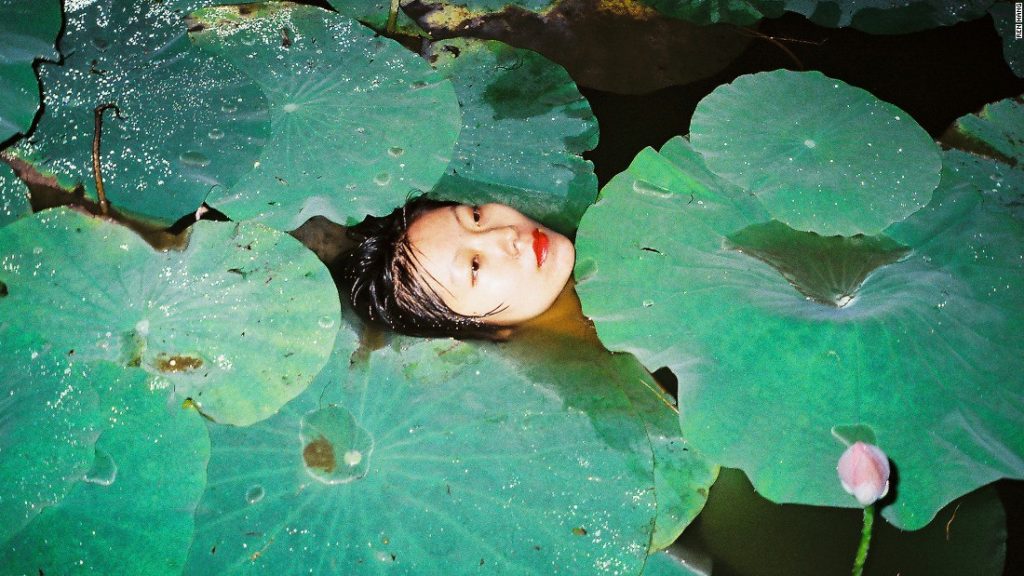Following news of the tragic death of Ren Hang back in February, tributes poured out far beyond the photographer’s homeland of China. After a lengthy battle with severe cyclical depression – which Hang made no efforts to disguise, documenting many of his episodes on his website – the photographer took his own life at just 29, jumping from the 28th floor of a building in Beijing.
Hauntingly, he wrote on the Chinese social media site, Sina Weibo, just a few weeks before: “Every year I have the same hope: to die early. I hope that can happen this year.”

Born in a suburb of Changchun in northeastern China, his upbringing was relatively calm. After leaving to study advertising in Beijing, he began to experiment with photography, capturing the everyday life of his roommates. In an interview with Purple magazine, he explained:
“I started shooting nudes only accidentally. In school, we were living in cramped dorm rooms of four people, so I would frequently see my roommates in the nude. It was a natural and easy subject because I was shooting everything anyway.”
It was Hang’s risqué and often-erotic photographs that earned him the spotlight the world over though. Unabashedly documenting human bodies, his portfolio juxtaposes the censorship and restrictions of his home country.

In his brief six-year career, Hang exhibited in creatively disparate cities, including New York, Tokyo, Paris, Copenhagen and Beijing. But he was no stranger to obstacles. In China, the authorities always seemed close on his heels, with exhibitions being closed down, cancelled at the last minute, defaced, and forbidden altogether.
And, there were just as many times where the young photographer was arrested mid-shoot for photographing naked people outdoors – nudity being considered a crime in China. His defence: “It’s more natural if they’re [his models] not wearing clothes”.
Although many drew parallels between Hang’s stark, playful tangle of limbs on camera and the restraining and sexually repressive forces of China’s politics, he was quick to dismiss theories that his work intentionally pushed boundaries.
With a humbling attention to detail, the photographer described his fascination for the human body many times, calling his work spontaneous and lacking in intention, saying to his book publisher, Taschen:
“I don’t really view my work as taboo, because I don’t think so much in cultural context, or political context. I don’t intentionally push boundaries, I just do what I do.”

His world merged naked flesh with the fluidity of nature, absorbing vulnerability and sexual intimacy. Tufts of grass and bodily hair, lilypads and red lips, and flowing water and outstretched limbs all went hand in hand. Gender was irrelevant in each photograph; the real focus was how to piece together bodies and nature like an unadulterated jigsaw puzzle – essentially natural at the core, yet somehow grotesque.
He balanced beauty with humour, transforming seemingly mundane white-washed settings into the unexpected; and exploring the freedom of the outdoors with the movement of nature and body.
In his 2014 poem ‘Gift’, he wrote in Chinese:
Life is really one
Precious gift
But sometimes I feel that
It has been given to the wrong person.
Hang’s work will continue to be cherished, admired and dissected for many years to come, because, if it’s one thing he did make clear, it’s that human bodies should not be suppressed. This is reflected very clearly in culture, as we are moving closer to liberation: ‘taboo’ topics such as mental health and sexuality are at last being vocalised in politics rather than shunned.
In his own words:
“I love China and I like shooting Chinese people. I was born here and I feel a big connection with my hometown. True, I’m restricted here, but the more I’m limited by my country, the more I want my country to take me in and accept me for who I am and what I do.”

As a tribute to the photographer, a special collection of Hang’s complete career monograph is available through Taschen, featuring more than 300 pages of his prolific photographs with well-loved favourites alongside many never-before-seen images.


